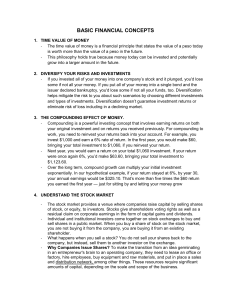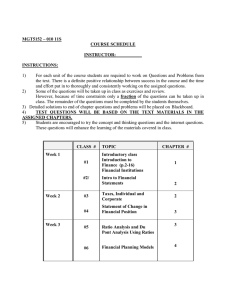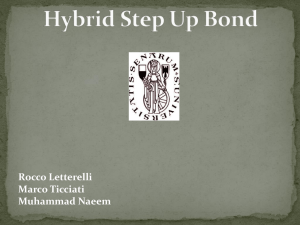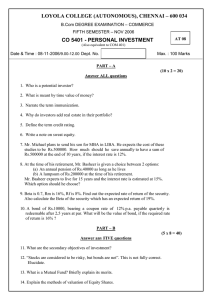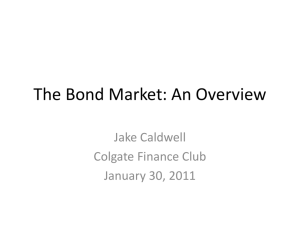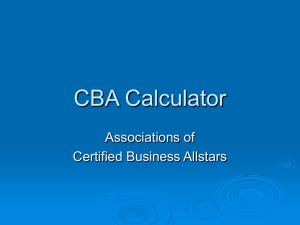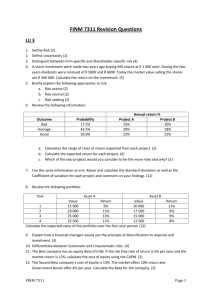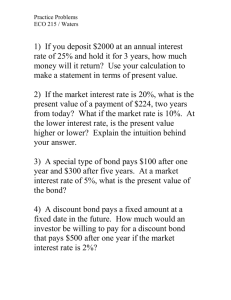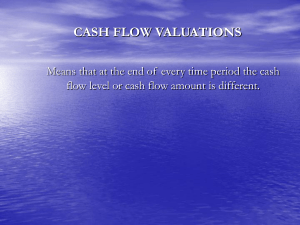LOYOLA COLLEGE (AUTONOMOUS), CHENNAI – 600 034
advertisement
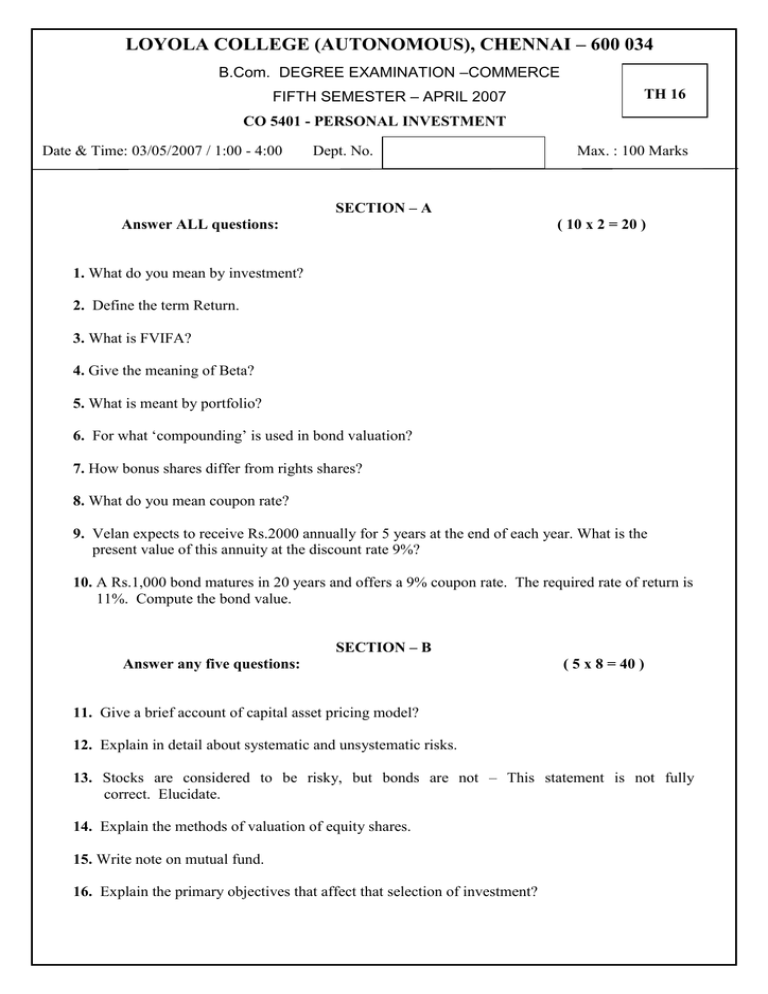
LOYOLA COLLEGE (AUTONOMOUS), CHENNAI – 600 034 B.Com. DEGREE EXAMINATION –COMMERCE FIFTH SEMESTER – APRIL 2007 TH 16 CO 5401 - PERSONAL INVESTMENT Date & Time: 03/05/2007 / 1:00 - 4:00 Dept. No. Max. : 100 Marks SECTION – A Answer ALL questions: ( 10 x 2 = 20 ) 1. What do you mean by investment? 2. Define the term Return. 3. What is FVIFA? 4. Give the meaning of Beta? 5. What is meant by portfolio? 6. For what ‘compounding’ is used in bond valuation? 7. How bonus shares differ from rights shares? 8. What do you mean coupon rate? 9. Velan expects to receive Rs.2000 annually for 5 years at the end of each year. What is the present value of this annuity at the discount rate 9%? 10. A Rs.1,000 bond matures in 20 years and offers a 9% coupon rate. The required rate of return is 11%. Compute the bond value. SECTION – B Answer any five questions: ( 5 x 8 = 40 ) 11. Give a brief account of capital asset pricing model? 12. Explain in detail about systematic and unsystematic risks. 13. Stocks are considered to be risky, but bonds are not – This statement is not fully correct. Elucidate. 14. Explain the methods of valuation of equity shares. 15. Write note on mutual fund. 16. Explain the primary objectives that affect that selection of investment? 17. Mr.Madhu seeks to invest Rs.1,00,000 for 3 years. He will receive an annual interest of 12%. Should he invest in annual, semi-annual or quarterly compounding? Which is beneficial? 18. A finance company advertises that it will pay a lumpsum of Rs.44,650 at the end of five years to investors who deposit annually Rs.6,000 for 5 years. What is the interest rate implicit in this offer? SECTION – C Answer any TWO questions: ( 2 x 20 = 40 ) 19. Explain the various factors the investor should consider in security analysis. 20. Give a brief account of various investment alternatives available to the personal investor other than stock and debentures. 21. Write note on: (a) Sweat equity (b) Pre-emptive right (c) default risk (d) Yield to maturity and (e) Time value of money *************** 2

